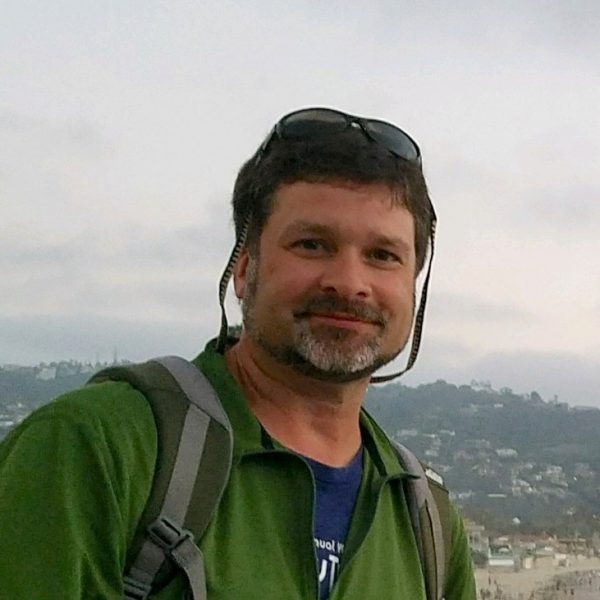Biography
Chris Hollister is the University at Buffalo’s Interim Head of Scholarly Communication. In that role, he advances initiatives related to scholarly publishing, open access, and open education. A longtime advocate and activist for transforming the current system of scholarly communication into an open one, Chris is co-founder and co-editor of the open access journal, Communications in Information Literacy. His current research interests include emerging trends in scholarly publishing, efficacy of open education, and social justice in library practices. Chris is sincerely grateful for the opportunities and the privileges associated with being a 2018-2019 fellow in the SPARC Open Education Leadership Program.
Leadership Portfolio
The Open Education Leadership Program reinforced many of my notions concerning open education: the challenges, the wins, the frustrations, the long game. By far, the most meaningful and fulfilling outcomes of this experience have been the relationships forged with other program fellows, and the greater affinity I feel for the open education leadership community.
Capstone Project
My capstone project for the leadership program was the development of a framework for an Open Educational Resources (OER) Studio. The purpose of this enterprise is to engage, educate, and train university faculty and instructors in the adoption or development of OER content for teaching undergraduate-level courses. The Studio will also specialize in facilitating the production of OER-related research.
The OER Studio will include programing for individual faculty and academic departments, and it will feature a fellowship program—the OER Curriculum—for competitively selected faculty to develop OER-based courses. Once established, the Studio’s purview will expand to include programing, including the OER Curriculum, for other State University of New York institutions. In the spirit of the open education community, the Studio will also serve as an OER program model for other institutions to replicate or to adopt and modify for their own purposes.
The OER Studio is envisioned as an integral part of the University Libraries’ scholarly communication unit. Studio administrators will also work with the University’s Open Education Research Lab to create, implement, and manage the research element. Studio research will focus on efficacy, student and faculty perceptions, and other questions related to OER-based teaching that merit investigation. Initial emphasis is data collection to facilitate research on the use and effectiveness of OER-based teaching in post-secondary environments.
To establish the framework for this capstone, it was necessary to develop an Affordable and Open Educational Resources web site featuring the OER Studio. This site also serves as the required Community Resource in my SPARC Open Education Leadership Program portfolio. Additional details about the OER Studio and my leadership program experience are provided in the Final Report.
